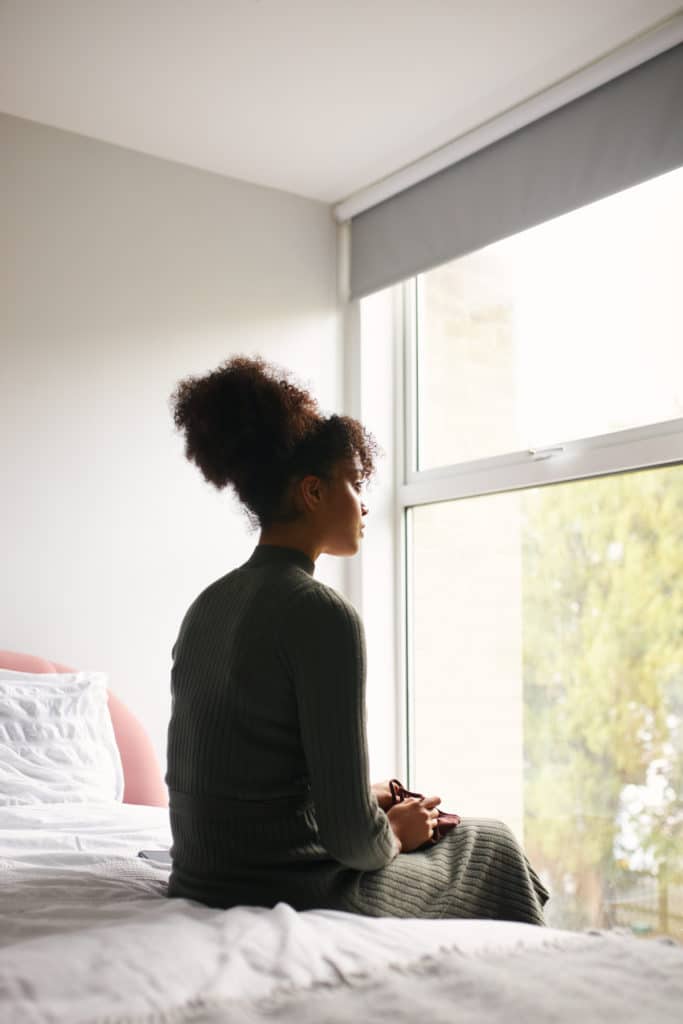When asking the question, what causes depression, it is important to understand that there is a wide range of risk factors that can influence the chances of a person developing depression, rather than a singular cause.
Genetics
Your genetics can be a significant factor in determining how likely you are to develop a depressive disorder, how likely you are to develop an addiction, and much more. Women, for example, are more likely to suffer from depression than men. Studies also show that a person with a family history of depression could be up to three times more likely to develop a depression disorder themselves.
Environment
Your environment can contribute to depression. Living in an abusive environment, witnessing crime or drug use regularly, being neglected, or living in poverty can all contribute to higher levels of depression.
Studies indicate that children exposed to violence, neglect, or live in extreme poverty have structural changes in specific areas of the brain and are less able to moderate things like anxiety levels, depression, resting adrenaline rate, and emotional stability as they grow up.
Trauma
Trauma can lead to depression. Trauma can include things that happened directly to you or things that happened to a loved one. The unexpected loss of a loved one, being the victim of assault or a violent act, or being on the frontlines of war or an emergency can all qualify as traumatic events that can lead to the development of depression if not properly treated.
Hormonal Changes
Hormonal changes are often brought about by pregnancy or childbirth. For that reason, after a complicated childbirth, or even a successful one, women can struggle with an immediate and severe change in hormones leading to depression. In these cases, it can be incredibly challenging at the moment, but symptoms will slowly fade over time as a person’s hormones return to normal.
Addiction
Addiction changes the chemical structure and function of your brain. Drug abuse can change what hormones are produced, how often, and what gets absorbed by your body. Unfortunately, at least one-third of people with depression also have an addiction.
People with diagnosed or undiagnosed depression often use drugs or alcohol as a form of self-medication. This then changes the brain structure and makes depression worse. Or, someone without depression starts using, and the changes in their brain cause depression.
In the case of a person experiencing symptoms associated with drug abuse and mental health concerns, it may be essential to find dual diagnosis treatment options. Water Gap Wellness Center is a drug rehab near New York and New Jersey, providing comprehensive substance abuse, mental health, and dual diagnosis treatment programs.











